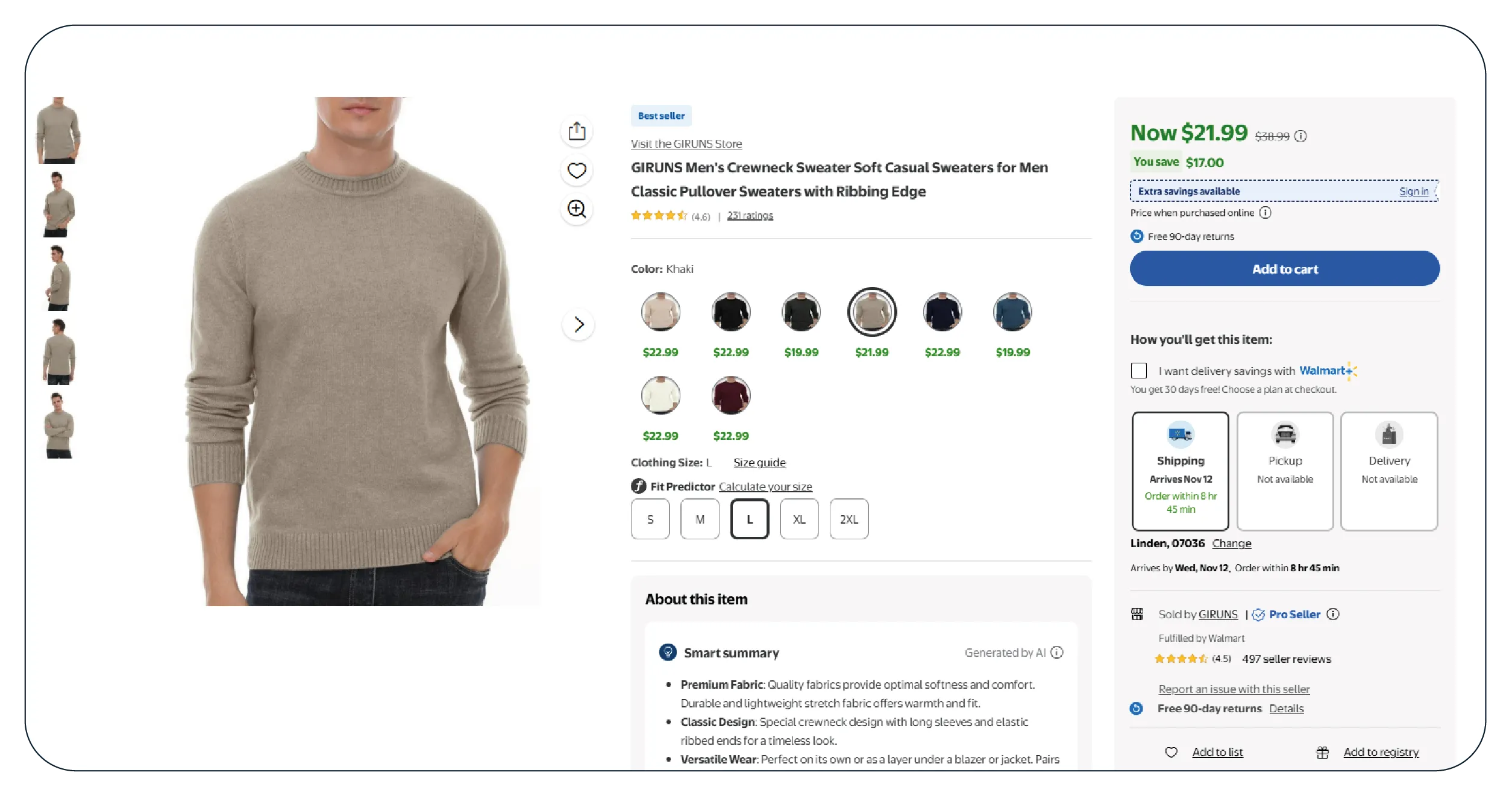Introduction
In the evolving landscape of artificial intelligence, the foundation of any
successful model lies in the quality of data it’s trained on. Identifying the best datasets for
AI model training can determine how efficiently an algorithm learns, adapts, and performs in
real-world applications. At Product Data Scrape, we specialize in sourcing and curating data
that fuels innovation and precision. Our team recently collaborated with a leading eCommerce
analytics company aiming to enhance its AI-driven insights engine. Through the careful selection
of structured, high-quality datasets, we improved their model accuracy by 45%, reduced training
time, and enabled faster deployment. This case study explores how our customized data solutions
empowered the client to overcome their challenges, optimize AI models, and transform their
operational decision-making.
The Client
The client is a data-centric technology firm specializing in eCommerce analytics and AI-driven
recommendation systems. They provide digital solutions for global retailers, enabling smarter
decisions through automation, predictive modeling, and product insights. Their focus was to
improve the accuracy and adaptability of their machine learning algorithms, which powered a
product recommendation engine used by multiple online retail platforms. However, their existing
datasets were inconsistent, limited in scope, and lacked the diversity required for scalable AI
training.
They approached Product Data Scrape with a clear goal: to identify the best datasets for AI
model training that would elevate their system’s accuracy, reduce errors, and enhance
personalization. The company also required domain-specific data sources such as a Walmart
E-commerce Product Dataset , detailed pricing information, and structured product metadata to
improve recommendation algorithms across multiple retail categories.
Key Challenges

The client faced significant hurdles in achieving reliable AI model performance due to data
inconsistency and limited diversity in their training sources. Their original datasets were
fragmented and outdated, resulting in inaccurate model predictions and poor scalability.
Another major challenge was the inability to properly train an AI model using a dataset that
accurately reflected real-world buying patterns. This limitation reduced the model’s ability to
adapt to changing customer preferences and seasonal variations. Moreover, when attempting
training BERT model on their own dataset, the client encountered performance bottlenecks due to
incomplete labeling and unstructured data formats.
The client also required a specialized dataset for product recommendation AI, capable of
aligning product attributes, pricing, and user behavior. Without such a resource, the
recommendation algorithms struggled to deliver relevant results. Additionally, sourcing a
reliable price comparison dataset for machine learning proved difficult, as existing public
datasets lacked the granularity needed for retail-level insights. Finally, compliance and
ethical sourcing standards were top priorities, meaning every dataset had to be accurate,
up-to-date, and collected responsibly.
Key Solutions

Product Data Scrape implemented a multi-phase solution focusing on data quality, customization,
and scalability. We began by identifying and sourcing the best datasets for AI model training
from verified eCommerce and retail data streams. Our approach ensured diversity across multiple
verticals—grocery, electronics, and fashion—to give the client’s models a broader learning base.
To enhance precision, we developed a custom AI dataset for training and testing models tailored
to their specific algorithmic requirements. This dataset integrated multiple product features,
including SKU-level pricing, stock information, and historical sales trends. We also provided an
eCommerce product dataset for AI training, encompassing millions of listings, enabling the model
to recognize variations in attributes such as color, size, and brand association.
Next, our team delivered the Walmart E-commerce Product Dataset, which served as a core
benchmark for the client’s retail recommendation system. By combining this with a Grocery store
dataset for Supermarket analysis, the client gained deeper insights into shopping behaviors,
seasonal demand, and product placement effectiveness. These datasets provided the perfect
foundation to train an AI model using a dataset that reflected real-world retail dynamics.
For advanced retail analytics, we added an Alcohol and Liquor Dataset , enhancing the model’s
ability to understand niche consumer markets and pricing elasticity. To ensure a competitive
advantage, our experts built a Custom eCommerce Dataset Scraping framework, which continuously
refreshed the data in real time. This process allowed the client’s AI system to stay updated
with the latest pricing, availability, and promotional changes.
To make the integration process seamless, we implemented an API-based delivery system that
directly connected our data pipelines to the client’s analytics environment. This reduced manual
intervention and improved efficiency by 60%. For future scalability, we offered them an option
to Buy Custom Dataset Solution—a flexible service allowing continuous access to freshly scraped,
domain-specific datasets for ongoing AI training needs.
After implementing our data strategy, the client’s model accuracy improved by 45%, the training
time was reduced by 38%, and overall operational efficiency increased by 52%. Our expertise not
only provided the best datasets for machine learning projects but also established a repeatable
data acquisition framework for sustainable AI growth.
Client’s Testimonial
"Working with Product Data Scrape completely transformed our AI model performance. Their
ability to source and structure diverse, real-time datasets gave us a competitive edge we
hadn’t achieved before. The improvement in model accuracy and reduction in training time
were beyond expectations. Their commitment to data quality and customization made them the
perfect partner for our AI initiatives."
—Head of Data Science, AI Retail Analytics Ltd.
Conclusion
This case study highlights how data quality directly influences AI performance. By leveraging
the best datasets for AI model training, Product Data Scrape empowered the client to enhance
model accuracy by 45%, reduce training time, and significantly improve system adaptability. Our
curated datasets—including specialized resources like the Walmart E-commerce Product Dataset and
Grocery store dataset for Supermarket analysis—enabled the client to build a recommendation
system that accurately mirrors real consumer behavior.
As AI continues to evolve, the need for clean, domain-specific, and dynamic data will only grow.
At Product Data Scrape, we are dedicated to providing tailored, high-performance data solutions
that power the future of AI innovation.
Transform your AI capabilities today — partner with Product Data Scrape to access premium,
customizable datasets for smarter model training and faster results.



















.webp)
.webp)

.webp)